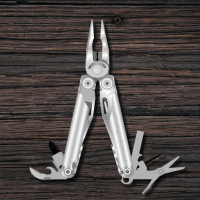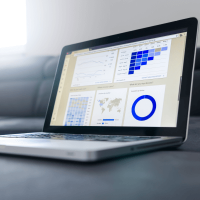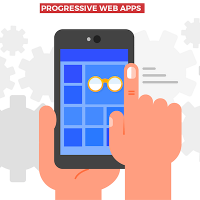Top 7 IoT Tools & Platforms for App Development
The connected reality of gadgets presented by the Internet of Things (IoT) can no longer be considered as just a buzz as it has already transformed our living to a great extent. The connected things made our homes, workplaces, and transportation smarter. No wonder IoT apps are now one of the most popular app categories.

As the latest statistics reveal, the global market share of IoT apps is expected to touch a whopping 520 billion USD by the end of 2021. Another market statistic reveals that by 2030, the number of IoT devices in the world is going to be 25.44 billion or more.
In this thriving ecosystem of IoT, mobile apps often play a central role by allowing ease of maneuvering these devices right from the handheld screens. Moreover, IoT apps taking stock of the data of connected gadgets and user interactions can utilize the same for producing highly valuable data-driven insights on users, their intent, and preferences.
In recent years, several IoT app development tools emerged making the app development for these connected gadgets even easier. While there are too many such tools, here we would like to present only a handful of the best IoT development tools that you can try in your app projects.
1. Arduino

Arduino is a robust, highly efficient, and low footprint smart IoT development tool that developers prefer to enhance simple prototyping platforms loaded with a multifarious variety of software as well as hardware solutions. When it is about reducing the cost of app development for IoT projects, the easy-to-use Arduino comes to mind first.
Arduino works very simply just by allowing the processing of data fetched from the working IoT sensors. Since Arduino comes equipped with a super-efficient microcontroller, the tool can easily process data and ensure streamlining smart interactions of connected devices.
Some of the key features of IoT apps include the following:
- Easy and manageable learning curve.
- Registering of devices without any fuss.
- On the motion control with a mobile dashboard.
- Allowing smooth integration of all important tools.
2. Google Cloud IoT

You must have known the huge role cloud computing platforms play for IoT apps. Yes, behind the connected reality that continues to expand before us, the remote cloud servers and their continuous remote computing support play a crucial role. Among all the cloud computing platforms, Google is regarded to be a dynamic one providing unparalleled infrastructure and power of advanced analytics.
Google Cloud IoT has been rolled out as the IoT solution developed based on the Google Cloud Platform. Offering a comprehensive and robust set of tools it offers pretty much everything that modern IoT applications need ranging from connectivity, processing, storage, and data analysis at the cloud as well as at the edge of the network.
This cloud IOT solution also incorporates the power of well-known cloud services from Google Cloud like BigQuery and Cloud Dataflow. Along with these third-party tools and solutions, Google Cloud IoT offers a robust and complete development stack for all kinds of IoT apps. It can continuously draw its power by integrating different modules of Google Cloud as the development needs evolve.
Some of the key capabilities of the Google Cloud IoT platform include the following:
- Offering maintenance and support based on precise predictive insights.
- Capability to track assets in real-time.
- Robust capability in managing logistics and supply chain.
- Features and functionalities optimized for smart automation in buildings and cities.
3. AWS IoT

Amazon Web Services (AWS) is considered to be the most popular leading cloud computing platform for many reasons. Apart from dividing the best repository of tools, capabilities, and features, AWS offers awesome customization, unmatched flexibility, and a high level of scalability to accommodate cloud IoT requirements in all kinds of solutions.
The best thing about AWS IoT cloud is that it boasts of a rich collection of highly structured IoT services extending from right from the cloud servers to the edge of a network besides incorporating analytics in its services. As for pricing, AWS offers a tremendously flexible model and the cost depends on the number of connected devices, use of storage, traffic volume, and a few other flexible denominators.
Some of the key capabilities that help AWS IoT stand apart from the rest include the following:
- Super-efficient predictive maintenance and quality control.
- Real-time tracking of remote operations.
- Helping to develop smart home automation.
- Real-time tracking of traffic.
- Ensuring public safety.
- Monitoring network and device health.
4. IBM Watson

IBM Watson has been one of the top names in the field of IoT integrations and implementations. While offering future-ready IoT solutions for a wide variety of contexts and enterprise segments, IBM Watson focuses mainly on safe and secure data transfer, efficient control of remote devices, and robust cloud storage capability.
Some of the key capabilities and characteristics that make IBM Watson popular among enterprises include the following:
- Widely known for highly secure architecture leaving no risks to data.
- Robust data storage solution with a real-time data assessment.
- Scalable data infrastructure accommodating every industry need.
5. Tessel 2

Tessel has emerged as a highly user-focused and powerful IoT app platform with AI capabilities. Tessel 2, the latest version of the platform is even more popular for prototyping different IoT systems. The best thing about Tessel 2 is that it is capable of integrating a variety of sensors and modules as per the development needs. Tessel provides robust hardware solutions and server-side solutions for IoT systems.
Some of the key capabilities and hallmarks of Tessel 2 include the following:
- Delivers the most reliable wi-fi connectivity.
- Super-efficient power management.
- Robust toolset and hardware capabilities for different IoT projects.
- Allows programming through the use of NodeJS.
6. Salesforce IoT Cloud

Salesforce IoT Cloud hailed by the leading ERP and CRM solution creator Salesforce is sought after for its ability to integrate data from different enterprise facets to ensure highly efficient data-driven strategizing, decision making, and business process automation. This enterprise-grade IoT platform allows businesses to streamline data from associates and partners, customers, device sensors, and mobile devices to carry out relevant and intuitive business activities.
Some of the key features and capabilities of this platform include the following:
- Monitoring traffic in real-time.
- It helps you validate a new business idea without involving coding.
- It allows streamlining data sourced from multiple devices into the CRM.
- Data-driven performance and usage tracking and maintenance.
7. IRI Voracity

IRI Voracity emerged as a cost-competitive IoT platform helping with data analytics, discovery, governance, integration, and data migration. For streaming device data to process reports and enhance aggregation, the platform uses MQTT or Kafka. The platform also offers a robust engine for data manipulation allowing quick aggregation.
Some of the key features and capabilities offered by this tool include the following:
- IRL Voracity is capable of data replication, migration, integration, and categorizing IoT data for archives, analytics, and all other purposes.
- The platform is capable of bringing together different data logs, device sensors, and a variety of data sources.
- The platform offers a data-wrangling node to help with efficient aggregation of data and for feeding machine learning algorithms.
- It is a highly flexible IoT tool to work on diverse platforms such as Linux, Windows, Unix, z/Linux mainframe, and Raspberry Pi.
Conclusion
These IoT tools best exemplify the robust and comprehensive capabilities and advanced features that today’s IoT app projects need. The best thing is, IoT app development is no longer just limited to big tech companies, it is increasingly expanding to innovative startups and small IT companies and thus opening flood gates of innovations.
About the Author

Tuhin Bhatt is one of the co-founders of Intelivita, a digital transformation place to hire dedicated mobile app developers. Tuhin is regarded in the industry as a powerhouse of unique and best app ideas that shaped award-winning app projects across iOS, Android, web, desktop, and game console platforms. He usually writes on cutting-edge technologies, future-ready development practices, eye-opening leadership principles, and trending entrepreneurial skills.






